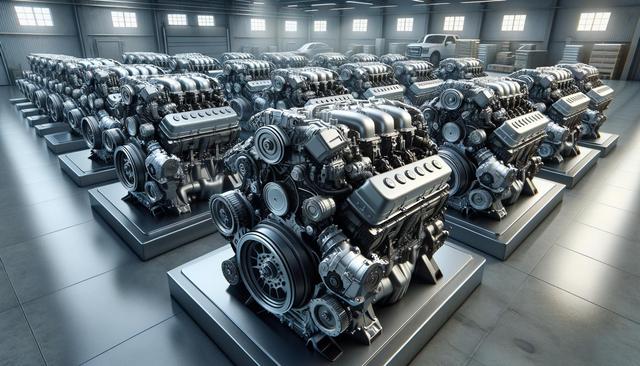Understanding What Low Mileage Really Means
When people hear the term ‘low mileage used engine,’ they often associate it with reliability and longevity. But what exactly qualifies as low mileage? Generally, an engine with fewer than 60,000 miles is considered to have low mileage, though this benchmark can vary depending on the engine type and vehicle usage. Mileage alone, however, doesn’t tell the whole story. The condition of a used engine depends not only on how far it has been driven, but also on how well it has been maintained. Regular oil changes, correct storage, and gentle driving habits can all contribute to the overall health of an engine.
It’s also useful to understand the context in which the engine was used. For example, engines taken from vehicles that were used primarily for highway driving often experience less wear than those used in stop-and-go city traffic. This highlights the importance of sourcing engines from reputable suppliers who provide background details, not just mileage numbers.
Benefits of Choosing a Low Mileage Used Engine
There are several advantages to opting for a low mileage used engine, especially when compared to either rebuilding an old engine or purchasing a new one. One of the most significant benefits is cost savings. Used engines typically come at a fraction of the cost of new engines, while still offering many years of dependable service.
Here are a few reasons why low mileage used engines are a preferred choice for many vehicle owners:
- Lower upfront cost compared to new engines
- Potential for longer lifespan due to reduced wear and tear
- Environmentally friendly option by reducing waste and promoting reuse
- Often comes with limited warranties from certified suppliers
These benefits make low mileage used engines an attractive option for both individual car owners and automotive repair businesses.
Where to Source Reliable Low Mileage Engines
Finding a trustworthy source for low mileage used engines is crucial. Not all suppliers offer the same level of transparency or quality assurance. Look for sellers who provide detailed documentation, including engine serial numbers, vehicle history, and service records. Reputable suppliers often test their engines for compression and function before selling, which adds an extra layer of assurance for buyers.
Reliable suppliers may also offer:
- Engine performance testing certificates
- Return policies or exchange options
- Technical support for installation
- Clear warranty terms
Establishing a relationship with a well-regarded supplier can make the buying process smoother and increase the chances of receiving a quality engine that meets your expectations.
Key Considerations Before Making a Purchase
Before purchasing a low mileage used engine, it’s important to consider several factors besides just the mileage. Compatibility with your vehicle’s make and model is essential. Even within a single brand, engines can vary by year and trim level. Always verify that the engine you’re considering is a direct match for your vehicle or can be adapted with minimal modification.
Also, consider the following:
- Check for signs of oil leaks, corrosion, or physical damage
- Ask about the engine’s storage conditions
- Review the supplier’s return and warranty policy
- Ensure that any included accessories (such as alternators or sensors) are functional
Taking the time to evaluate these aspects can save future headaches and ensure your replacement engine serves you well for years to come.
Installation and Long-Term Maintenance
After acquiring a low mileage used engine, proper installation is key to its performance and durability. It’s often recommended to have the engine installed by a certified mechanic, especially if it involves modern vehicles with complex electronic systems. Improper installation can lead to operational issues and may even void any offered warranty.
Post-installation, regular maintenance is essential. This includes:
- Following scheduled oil and filter changes
- Monitoring coolant levels and condition
- Using quality replacement parts as needed
- Paying attention to any unusual noises or performance shifts
By committing to a consistent maintenance routine, vehicle owners can maximize the lifespan of their used engine investment and avoid costly repairs down the line.
Conclusion: A Smart Investment for the Right Buyer
Low mileage used engines offer a practical and economical option for vehicle owners looking to extend the life of their car without incurring the high cost of a new engine. With proper research, careful sourcing, and diligent maintenance, these engines can provide reliable performance for years. Whether you’re a DIY enthusiast or working with a professional mechanic, choosing a well-maintained, low mileage engine can be a smart and sustainable choice.







